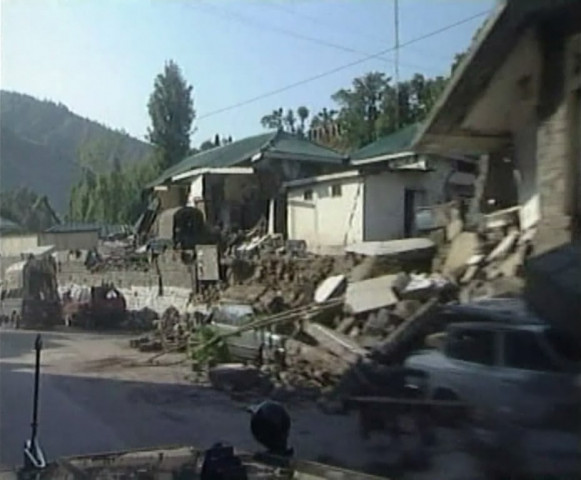South Asian Cities Conference: Don’t ignore disaster management when pursuing development, say experts
Earthquake of 2005 was a wake up call, but civic bodies still not prepared.

Photo of the damage caused to houses during the earthquake of 2005. PHOTO: TMN
Sharing field operation experiences, the speakers gave examples from all over Pakistan on disaster management.

Disasters are a common feature in Pakistan due to its geographic location. “We are a huge country, which is affected by all kinds of hazards,” said Brig Kamran Mirza of the National Disaster Management Authority (NDMA). Landslides, avalanches, flooding are all recurrent features while tsunamis, drought, forest and urban fires, oil spills, cyclones, epidemics and pandemics and earthquakes take place every now and then. “The earthquake in 2005 was a wake-up call for us,” he said. “We really need to work on rescue, relief, recovery, rehabilitation and reconstruction when there is a disaster.”
Unfortunately, though when development is taking place, there is little consideration given to disasters, said Dr Rizwan, the moderator. “There is little understanding about the roles that civic bodies have to play, which is why there is always mismanagement,” he said. There are very limited policies on disaster, thus there is no arrangement on time, he added. He reiterated that the local management does very little when there is a disaster. “Gaps need to be eliminated between all the provinces and there should be a uniform policy,” he said. “Are we prepared for anything at all?”
Dr Idrees Mehsud, the director of Disaster Risk Reduction at NDMA, said data about relevant areas need to well documented so that if there is a crisis, one can always measure the casualties in terms of people and demographics.

Khadija Jamal Shaban of Focus Humanitarian Assistance said important consideration needs to be given to the fact that gender plays an important role when there is a disaster. “A lot of women die when there is a disaster and the reason is that they [waste precious] time inside their houses hunting for a chador. “These perceptions demand deep sensitisation on the part of disaster managers,” she said.
Published in The Express Tribune, January 13th, 2014.



















COMMENTS
Comments are moderated and generally will be posted if they are on-topic and not abusive.
For more information, please see our Comments FAQ